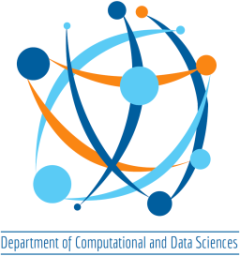CDS-CS Research Admissions Brochure, 2017
[Download as PDF] (Updated on May 14, 2017)
This brochure provides information on the Research Admission process into the Computer and Data Systems Stream (CD-CS) of CDS for 2017. It describes the research laboratories in the CD-CS stream which are accepting students this year, and the topics for the written and oral components of the research interview.
A. Research Activities at CDS
Research activities at CDS are categorized into two streams: “Computational Science” and “Computer and Data Systems”. Research admissions are conducted separately for each stream. This brochure is for the Computer and Data Systems stream (CDS-CS). So please make sure you are referring to the appropriate brochure.
B. Research Interview Process
The interview process for the Computer and Data Systems stream has two stages: Written and Oral (both conducted on the same session).
- Written component (Duration: 30 minutes): A written exam consisting of short answer questions is conducted first to test the candidate’s suitability for the research programs at CDS. The questions will be from the following subjects: Programming in C, Data Structures, Algorithms, Discrete Mathematics, Probability and Statistics. The level of preparation expected will be at the final year engineering undergraduate level.
- Oral Interview: Candidates who are successful in the written component will attend an oral interview before a CD-CS faculty committee. In the oral interview, you will be questioned on:
- Basic Area Subjects: Programming in C, Data Structures, and Algorithms. Students are expected to be prepared in all these subjects for oral examination. The level of preparation expected will be at the final year engineering undergraduate level.
- Lab-related Topics and Suggested Paper Readings: Candidates must choose one primary first choice lab, and between zero and two alternate second choice lab(s) which you are interested in working in. You will be tested on topics related to the lab(s) you choose, and candidates are required to be prepared on the lab-related syllabus. You are also encouraged to read suggested papers, if any, for the lab. The list of labs and their syllabus topics are given below.
Note: Preference will be given to candidates applying for the PhD program. So students with a Bachelors’ degree are encouraged to apply for a (Direct) PhD. Candidates for PhD are strongly advised to prepare well on their fundamentals, come with focus on the research areas they would like to target in their PhD, be well versed with the target research areas, and have clarity on the preferred lab and the kind of work done in the preferred lab in the targeted research areas. e.g., if you would like to do PhD research in cloud computing, you are expected to have Masters-level knowledge on distributed/cloud computing and the research opportunities that exist in this area. Responses like “I would like to work in cloud computing, but I do not know about the field, but can pick up if admitted” will not be encouraged.
C. List of Labs Accepting Research Students in 2017, and Interview Syllabus
The labs and areas in CDS-CS can be broadly categorized into 1. Systems Research and 2. Data Science Research.
Note: Two labs (CAL and VAL) have been removed from this list as they are not taking students. (14 May, 2017)
Systems Research
For labs working in systems research, strong background in operating systems or computer architecture is required.
-
Cloud Systems Lab
- Faculty: J. Lakshmi (http://www.serc.iisc.in/~jlakshmi)
- Website: http://www.serc.iisc.in/facilities/cloud-systems-lab/
- Areas: Cloud System Architectures for end-to-end QoS of hosted applications with regard to performance, security, dependability and fault tolerance; virtualization stack for compute, network and storage clouds; Cloud middleware for elasticity, placement optimization and QoS.
- Interview Syllabus: Operating Systems, Distributed Systems, Computer Organization.
- Suggested Paper Reading for Interview: M. Rosenblum and T. Garfinkel, “Virtual machine monitors: current technology and future trends,” in Computer, vol. 38, no. 5, pp. 39-47, May 2005. http://ieeexplore.ieee.org/stamp/stamp.jsp?tp=&arnumber=1430630&isnumber=30853
-
Distributed Research on Emerging Applications & Machines (DREAM) Lab
- Faculty: Yogesh Simmhan (https://cds.iisc.ac.in/faculty/simmhan)
- Website: www.dream-lab.in
- Areas: Distributed Systems, Big Data Platforms, Large-scale Graph Algorithms, Cloud Computing, Internet of Things (IoT) applications.
- Interview Syllabus: Operating Systems, Distributed Systems, or Graph Algorithms.
- Suggested Paper Reading for Interview: “GoFFish: A Sub-Graph Centric Framework for Large-Scale Graph Analytics”, Simmhan, et al, https://arxiv.org/abs/1311.5949
-
Middleware And Runtime Systems (MARS) Lab
- Faculty: Sathish Vadhiyar (www.serc.iisc.ernet.in/~vss)
- Website: mars.cds.iisc.ac.in
- Areas: High performance computing (HPC), Parallel computing – middleware, system software, algorithms and applications on large-scale parallel computers and GPUs.
- Interview Syllabus: Operating Systems, Graph Algorithms.
- Suggested Pointers and Paper Readings for Interview:
- MPI-1: Online tutorial “MPI Complete Reference”. Google for it. Read on point-2-point, and collective communications.
- Google for paper “Optimization of Collective Communication Operations in MPICH” by Thakur, Rabenseifner and Gropp, IJHPCA 2005.
Data Science Research
For labs working in data science research, strong background in probability & statistics, and linear algebra is required.
-
Machine And Language Learning (MALL) Lab
- Faculty: Partha Pratim Talukdar (http://www.talukdar.net)
- Website: https://malllabiisc.github.io
- Areas: Machine Learning, Natural Language Processing.
- Interview Syllabus: Machine Learning, Natural Language Processing.
- Suggested Paper Reading for Interview: http://talukdar.net/papers/NELL_aaai15.pdf
-
Visual Computing Lab
- Faculty: Anirban Chakraborty
- Areas: Visual analytics, Data association, Data fusion and consistency, Bio-medical image analysis, Video surveillance in camera networks, Activity forecasting and anomaly detection.
- Interview Syllabus: Probability and statistics, and computer vision.
- Suggested Paper Reading for Interview:
- Zheng, Wei-Shi, et al. “Partial person re-identification.” International Conference on Computer Vision. 2015. (http://www.eecs.qmul.ac.uk/~sgg/papers/ZhengEtAl_ICCV2015.pdf)
- Nunez-Iglesias, Juan, et al. “Machine learning of hierarchical clustering to segment 2D and 3D images.” PloS one8 (2013): e71715. (http://journals.plos.org/plosone/article?id=10.1371/journal.pone.0071715)



